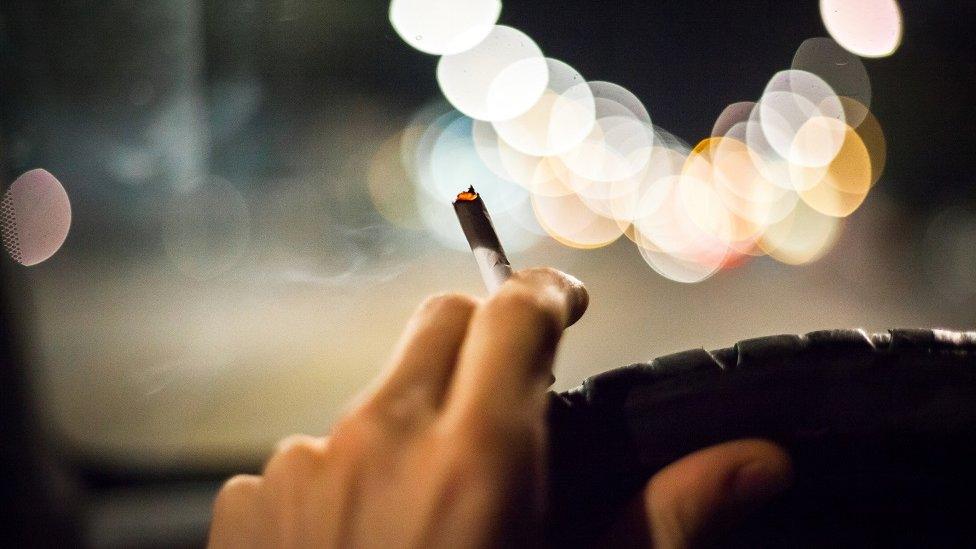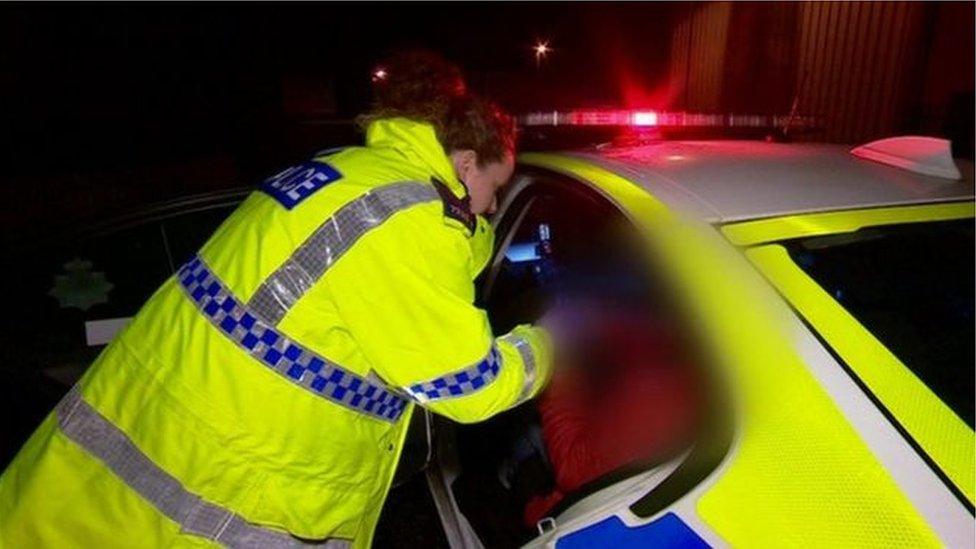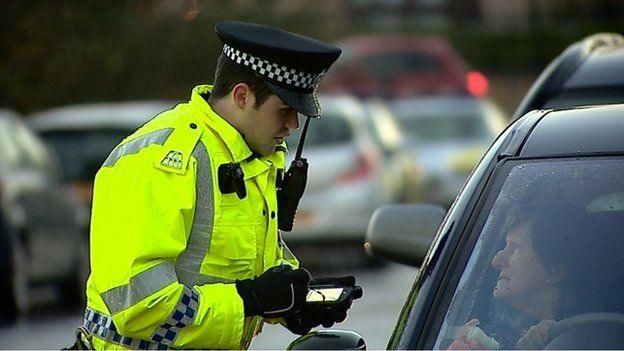New law will bring "zero tolerance" approach to drug driving
- Published

New laws would make it easier for police to target people with drugs such as cannabis in their bloodstream
New laws to introduce a "zero tolerance" approach to drug driving are being proposed by the Scottish government.
Ministers want to make it easier for the police to target people driving with illegal drugs, such as cannabis and cocaine, in their bloodstream.
The plan would do away with the existing need to prove someone was driving in an impaired manner as a result of taking drugs.
The crackdown will begin in October.
Currently in Scotland it is illegal to drive if impaired by drugs - whether they are prescription drugs or illegal substances such as heroin.
But under the changes, there would be specific limits for certain drugs - as there is with alcohol - and a zero tolerance approach to others.
The aim is to make it quicker and easier to hold drug-drivers to account.
'Completely unacceptable'
Justice Secretary Humza Yousaf said: "The introduction of drug driving limits will strengthen the power of Scotland's police and prosecutors to tackle the minority of drivers who irresponsibly put themselves and other road-users at risk.
"Drug driving is completely unacceptable, and we will continue to use all of the tools at our disposal to prevent the avoidable deaths and damage caused by those who drive under the influence of drugs.
"Together with our stringent drink-driving limits, these new laws will ensure that Scotland has the UK's most robust laws against impaired and unsafe driving."
Under the Scottish government plan, eight of the most common illegal drugs - including heroin, ketamine and ecstasy - will have limits set very close to zero so as to rule out claims of accidental exposure.
A further eight drugs, which can have medicinal purposes - such as diazepam and methadone - will have higher limits based on their ability to impair drivers.
Crucially, the proposals mean for the first time that just having drugs in your system is sufficient evidence to prosecute, if you breach the limits - removing the need to prove driving was impaired.

Police say the new legislation will enhance their ability to detect and deter drug-drivers
A similar crackdown came into force in England and Wales in 2015 where officers use a device called a 'drugalyser' to check for cannabis and cocaine.
The testing kit uses a mouth swab to check for the presence of drugs and a blue line appears after eight minutes if the person has taken them.
Police Scotland is currently deciding whether they will use these machines for the crackdown, set to come into force on October 21, but officers are expected to expand use of field impairment tests, which assess a drivers balance and co-ordination, for all drugs.
Existing law makes it an offence to be in charge of a vehicle while unfit to drive through drink or drugs, with the penalties being a minimum 12 month driving ban, up to six months in prison and a fine of up to £5,000.
The new offence of driving while above specified drug limits will operate alongside this current offence and carry with it the same maximum penalties.
A vote of MSPs will be needed for the Scottish government's plans to come into force.
A crackdown on drink driving, which reduces the legal alcohol limit from 80mg to 50mg in every 100ml of blood, came into force in 2014.
Chief Inspector Stephen Innes, of Police Scotland, said: "Police Scotland is committed to reducing road casualties, and tackling drink and drug driving is a key focus of our activity. The devastating impact of drug driving on victims, communities and users themselves cannot be understated.
"This new legislation will significantly enhance our ability to detect and deter motorists engaging in this extremely risky driving behaviour.
"We are currently working closely with key partners and plans are well advanced to deliver this new legislation in October."
- Published21 April 2017
